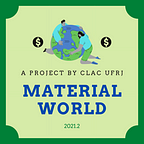Do we buy it because of christmas?
What is the real meaning of christmas? Is it about Jesus, foods, or presents? If you ask this question to a child, we know the possible answer. When I was a child, I saw a lot of children saying “Santa Claus” is the real meaning of this holiday… in a church.
How does it start?
So, where did the presents come from? they need to be bought. But, only kids care about it? No. Adults like to give and receive presents. Stores also want to sell more and more, thus we have the panorama for consumption stimulation.
How do stores influence that?
When Christmas is close, stores make a lot of promotions to sell more. We can start by mentioning the “Black Friday”, occurring at the end of november. There are also other forms of promotion, like cashbacks, huge discounts and combined sales. But who gets more with this? Clearly, the stores. They sell more using subconscious marketing.
How does subconscious marketing make people buy more?
“Get a cashback of 50% and this free item that costs a lot of money”. This phrase is an example of how stores can manipulate people. In the end, the consumer will pay more under the illusion of benefit. In addition to online shopping, and a double shot of dopamine that increased during the Covid-19 pandemic, we have the perfect scenario for stores. Furthermore, with the “obligation” to give presents at Christmas, the sales grow. The holiday makes people buy more and feel “happy” with that.
So, does Christmas stimulate consumption?
Yes, it does. The real meaning gets lost, and people only care about giving and receiving presents. It starts with childhood and Santa Claus, forcing parents to buy things to preserve the childhood dream. This continues with the big companies’ advertisements , saying you can only demonstrate your love by giving presents and that they are “good enough” to give you a discount. In the end, they win, we lose. All this process gets boosted with online shopping facilities and ostentation.
Thanks, #ProjectMaterialWorld and Luísa, for giving me the chance to make this article.
Developed by João Célio Luna de Carvalho, an Agricultural Engineering Student from Rio de Janeiro.
